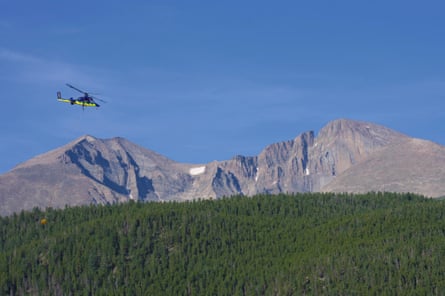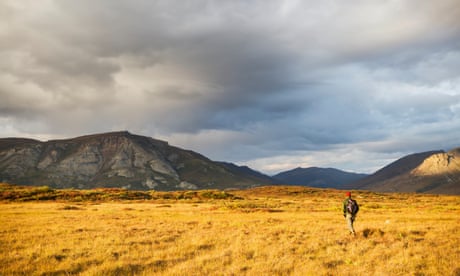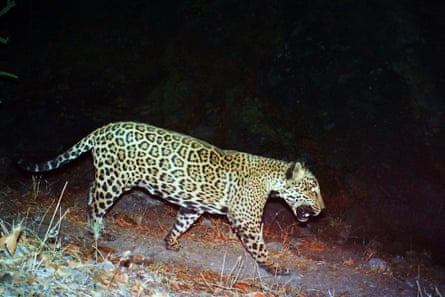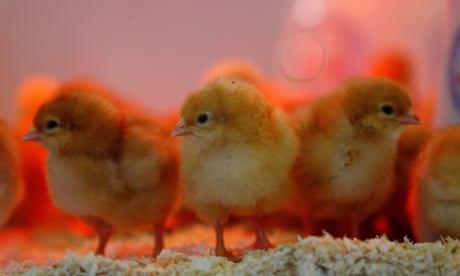CIA AGENT CALLS FOR MORE STARVATION FOR VENEZUELA TILL THEY GIVE UP THEIR STRUGGLE FOR CONSTUIENT ASSEMBLY DEMOCRACY
Venezuelan opposition leader Juan Guaido says the international community still needs him to help oust President Nicolas Maduro ROFLMAO
Caracas (AFP)
Opposition leader Juan Guaido is leading a boycott of Venezuela's legislative elections on Sunday and, despite losing political momentum, has told AFP he is still the person the international community needs to oust Nicolas Maduro's regime.
To make that happen, he needs the continued support of the United States and President-elect Joe Biden, though Biden's advisors have said they will explore direct contacts with Maduro.
"It would be a tragedy," warned Guaido in the interview at his Caracas home Monday.
"Let's not be in any doubt that at times, the international community would fall into the temptation of getting along with the dictator.
"What's the incentive for the dictator (to leave) if he knows that he's going to be recognized? None!"
Guaido said he has yet to speak directly with Biden or his staff, but has made approaches through US lawmakers, as he hopes to maintain "bipartisan support" from Democrats and Republicans.
- 'Fraud' election -
Recognized for more than a year as interim president by dozens of countries -- including his chief backer, the United States -- Guaido has dismissed the December 6 polls as "a fraud" designed to strengthen Maduro's grip on power.
"It would be difficult to call that process an election," the 37-year-old opposition leader said.
Guaido's apartment has lost the warmth of a home, as it has been converted into a makeshift office with papers, books and computers on every table and a pile of boxes in a corner.
He moved his operation into his home after Maduro's feared Sebin intelligence service raided and trashed his office several months ago, one of several episodes aimed at intimidating Guaido and other opposition figures.
His desk, in what was his young daughter Miranda's room, is flanked by a Venezuelan flag and a photograph of one of the dozens of demonstrations he led in 2019, now increasingly rare.
- Popular support -
The poll boycott leaves the way open for Maduro's United Socialist Party of Venezuela (PSUV) to win a majority in the National Assembly, the only institution still in opposition hands.
"Maduro's objective isn't even to gain legitimacy," Guaido said, adding the goal was instead to "annihilate the democratic alternative in Venezuela."
Guaido and the mainstream opposition parties have instead organized an alternative five-day referendum next week to garner popular support for a plan to prolong the current Assembly.
The intention is that if the legislative elections are invalidated, then the current Assembly would remain in place.
Guaido is speaker of the Assembly, a position from which he proclaimed himself interim president in January 2019. However, his popularity has dropped dramatically since then.
Without the Assembly, Guaido would lose formal legitimacy, leaving governments that have backed him -- not least Biden's incoming administration -- in a difficult position.
- Targeting sanctions -
Guaido hopes Biden will ratify existing US sanctions and fine-tune a more effective Maduro policy with the European Union and other Latin American countries.
"We have to get the government in the US on the same page as Europe, and with the countries of Latin America... and standardize sanctions," he said.
"Not only should they be increased but they should be standardized to prevent the dictatorship from being able to circumvent them."
Guaido insists on "maintaining international pressure" while simultaneously rekindling "popular pressure," which ebbed away in the midst of the Covid-19 pandemic.
He also said Venezuela's powerful military should be offered "incentives" to withdraw their allegiance from Maduro.
Outgoing US President Donald Trump's sanctions strategy included a veiled threat of military force to topple Maduro, a hope that the most radical Venezuelans clung to, later blaming Guaido when it did not materialize.
Guaido distanced himself from any further talk of military intervention.
"No one is offering military action, neither as a first, nor as a second, nor a third option" Guaido said.
"But there was talk of the options on the table, understanding the criminal nature of Nicolas Maduro," he added, emphasizing Maduro's indictment in the US on federal drug trafficking charges.
© 2020 AFP
Caracas (AFP)
Opposition leader Juan Guaido is leading a boycott of Venezuela's legislative elections on Sunday and, despite losing political momentum, has told AFP he is still the person the international community needs to oust Nicolas Maduro's regime.
To make that happen, he needs the continued support of the United States and President-elect Joe Biden, though Biden's advisors have said they will explore direct contacts with Maduro.
"It would be a tragedy," warned Guaido in the interview at his Caracas home Monday.
"Let's not be in any doubt that at times, the international community would fall into the temptation of getting along with the dictator.
"What's the incentive for the dictator (to leave) if he knows that he's going to be recognized? None!"
Guaido said he has yet to speak directly with Biden or his staff, but has made approaches through US lawmakers, as he hopes to maintain "bipartisan support" from Democrats and Republicans.
- 'Fraud' election -
Recognized for more than a year as interim president by dozens of countries -- including his chief backer, the United States -- Guaido has dismissed the December 6 polls as "a fraud" designed to strengthen Maduro's grip on power.
"It would be difficult to call that process an election," the 37-year-old opposition leader said.
Guaido's apartment has lost the warmth of a home, as it has been converted into a makeshift office with papers, books and computers on every table and a pile of boxes in a corner.
He moved his operation into his home after Maduro's feared Sebin intelligence service raided and trashed his office several months ago, one of several episodes aimed at intimidating Guaido and other opposition figures.
His desk, in what was his young daughter Miranda's room, is flanked by a Venezuelan flag and a photograph of one of the dozens of demonstrations he led in 2019, now increasingly rare.
- Popular support -
The poll boycott leaves the way open for Maduro's United Socialist Party of Venezuela (PSUV) to win a majority in the National Assembly, the only institution still in opposition hands.
"Maduro's objective isn't even to gain legitimacy," Guaido said, adding the goal was instead to "annihilate the democratic alternative in Venezuela."
Guaido and the mainstream opposition parties have instead organized an alternative five-day referendum next week to garner popular support for a plan to prolong the current Assembly.
The intention is that if the legislative elections are invalidated, then the current Assembly would remain in place.
Guaido is speaker of the Assembly, a position from which he proclaimed himself interim president in January 2019. However, his popularity has dropped dramatically since then.
Without the Assembly, Guaido would lose formal legitimacy, leaving governments that have backed him -- not least Biden's incoming administration -- in a difficult position.
- Targeting sanctions -
Guaido hopes Biden will ratify existing US sanctions and fine-tune a more effective Maduro policy with the European Union and other Latin American countries.
"We have to get the government in the US on the same page as Europe, and with the countries of Latin America... and standardize sanctions," he said.
"Not only should they be increased but they should be standardized to prevent the dictatorship from being able to circumvent them."
Guaido insists on "maintaining international pressure" while simultaneously rekindling "popular pressure," which ebbed away in the midst of the Covid-19 pandemic.
He also said Venezuela's powerful military should be offered "incentives" to withdraw their allegiance from Maduro.
Outgoing US President Donald Trump's sanctions strategy included a veiled threat of military force to topple Maduro, a hope that the most radical Venezuelans clung to, later blaming Guaido when it did not materialize.
Guaido distanced himself from any further talk of military intervention.
"No one is offering military action, neither as a first, nor as a second, nor a third option" Guaido said.
"But there was talk of the options on the table, understanding the criminal nature of Nicolas Maduro," he added, emphasizing Maduro's indictment in the US on federal drug trafficking charges.
© 2020 AFP




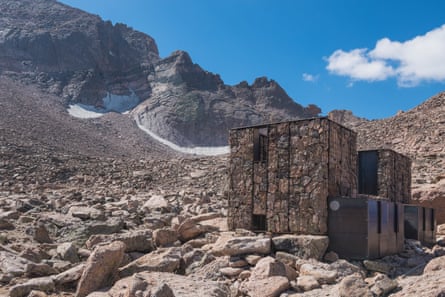
.png)

